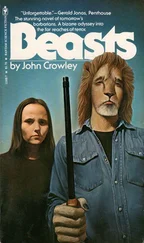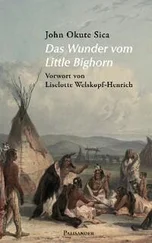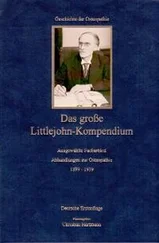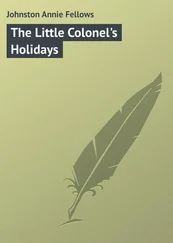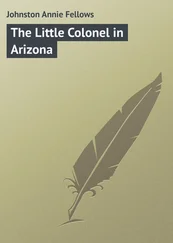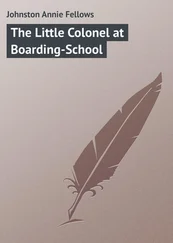Little, Big
or The Fairies’ Parliament
by John Crowley
A little later, remembering man’s earthly origin, ‘dust thou art and to dust thou shalt return,’ they liked to fancy themselves bubbles of earth. When alone in the fields, with no one to see them, they would hop, skip and jump, touching the ground as lightly as possible and crying ‘We are bubbles of earth! Bubbles of earth! Bubbles of earth!’
Flora Thompson,
Lark Rise
Lines from Lark Rise to Candleford by Flora Thompson; published 1954. By permission of Oxford University Press.
Lines from “For the Marriage of Faustus and Helen” from The Complete Poems and Selected Letters and Prose of Hart Crane by Hart Crane, edited by Brom Weber; copyright 1933, © 1958, 1966 by Liveright Publishing Corporation, also published by Oxford University Press. By permission of W.W. Norton, Inc. and Laurence Pollinger, Ltd.
(Note: Every effort has been made to locate the copyright owners of material reproduced in this book. Omissions brought to our attention will be corrected in subsequent editions.)
Men are men, but Man is a woman.
—Chesterton
On a certain day in June, 19**, a young man was making his way on foot northward from the great City to a town or place called Edgewood, that he had been told of but had never visited. His name was Smoky Barnable, and he was going to Edgewood to get married; the fact that he walked and didn’t ride was one of the conditions placed on his coming there at all.
Though he had left his City room early in the morning it was nearly noon before he had crossed the huge bridge on a little-used walkway and come out into the named but boundaryless towns on the north side or the river. Through the afternoon he negotiated those Indian-named places, usually unable to take the straight route commanded by the imperious and constant flow of traffic; he went neighborhood by neighborhood, looking down alleys and into stores. He saw few walkers, even indigenous, though there were kids on bikes; he wondered about their lives in these places, which to him seemed gloomily peripheral, though the kids were cheerful enough.
The regular blocks of commercial avenues and residential streets began gradually to become disordered, thinning like the extremes of a great forest; began to be broken by weedy lots as though by glades; now and then a dusty undergrown woods or a scruffy meadow announced that it was available to be turned into an industrial park. Smoky turned that phrase over in his mind, since that seemed truly the place in the world where he was, the industrial park, between the desert and the sown.
He stopped at a bench where people could catch buses from Somewhere to Elsewhere. He sat, shrugged his small pack from his back, took from it a sandwich he had made himself—another condition—and a confetti-colored gas-station road map. He wasn’t sure if the map were forbidden by the conditions, but the directions he’d been given to get to Edgewood weren’t explicit, and he opened it.
Now. This blue line was apparently the cracked macadam lined with untenanted brick factories he had been walking along. He turned the map so that this line ran parallel to his bench, as the road did (he wasn’t much of a map reader) and found, far off to his left, the place he walked toward. The name Edgewood didn’t appear, actually, but it was here somewhere, in this group of five towns marked with the legend’s most insignificant bullets. So. There was a mighty double red line that went near there, proud with exits and entrances; he couldn’t walk along that. A thick blue line (on the model of the vascular system, Smoky imagined all the traffic flowing south to the city on the blue lines, away on the red) ran somewhat nearer, extending corpuscular access to towns and townlets along the way. The much thinner sclerotic blue line he sat beside was tributary to this; probably commerce had moved there, Tool Town, Food City, Furniture World, Carpet Village. Well… But there was also, almost indistinguishable, a narrow black line he could take soon instead. He thought at first that it led nowhere, but no, it went on, faltering, seeming at first almost forgotten by the mapmaker in the ganglia, but then growing clearer in the northward emptiness, and coming very near a town Smoky knew to be near Edgewood.
That one, then. It seemed a walker’s road.
After measuring with his thumb and finger the distance on the map he had come, and how far he had to go (much farther), he slung on his pack, tilted his hat against the sun, and went on.
She was not much in his mind as he walked, though for sure she hadn’t been far from it often in the last nearly two years he had loved her; the room he had met her in was one he looked into with the mind’s eye often, sometimes with the trepidation he had felt then, but often nowadays with a grateful happiness; looked in to see George Mouse showing him from afar a glass, a pipe, and his two tall cousins: she, and her shy sister behind her.
It was in the Mouse townhouse, last tenanted house on the block, in the library on the third floor, the one whose mullioned windows were patched with cardboard and whose dark rug was worn white in pathways between door, bar and windows. It was that very room.
She was tall.
She was nearly six feet tall, which was several inches taller than Smoky; her sister, just turned fourteen, was as tall as he, Their party dresses were short, and glittered, hers red, her sister’s white; their long, long stockings glistened. What was odd was that tall as they were they were shy, especially the younger, who smiled but wouldn’t take Smoky’s hand, only turned away further behind her sister.
Delicate giantesses. The older glanced toward George as he made debonair introductions. Her smile was tentative. Her hair was red-gold and curly-fine. Her name, George said, was Daily Alice.
He took her hand, looking up. “A long drink of water,” he said, and she began to laugh. Her sister laughed too, and George Mouse bent down and slapped his knee. Smoky, not knowing why the old chestnut should be so funny, looked from one to another with a seraphic idiot’s grin, his hand unrelinquished.
It was the happiest moment of his life.
It had not been, until he met Daily Alice Drinkwater in the library of the Mouse townhouse, a life particularly charged with happiness; but it happened to be a life suited just right for the courtship he then set out on. He was the only child of his father’s second marriage, and was born when his father was nearly sixty. When his mother realized that the solid Barnable fortune had largely evanesced under his father’s management, and that there had been therefore little reason to marry him and less to bear him a child, she left him in an access of bitterness. That was too bad for Smoky, because of all his relations she was the least anonymous; in fact she was the only one of any related to him by blood whose face he could instantly bring to memory in his old age, though he had been a boy when she left. Smoky himself mostly inherited the Barnable anonymity, and only a streak of his mother’s concreteness: an actual streak it seemed to those who knew him, a streak of presence surrounded by a dim glow of absence.
They were a large family. His father had five sons and daughter by his first wife; they all lived in anonymous suburbs of cities in those states whose names begin with an I and which Smoky’s City friends couldn’t distinguish from one another. Smoky confused the catalogue himself at times. Since his father was supposed by them to have a lot of money and it was never clear what he intended to do with it, Dad was always welcome in their houses, and after his wife’s departure he chose to sell the house Smoky was born in and travel from one to another with his young son, a succession of anonymous dogs, and seven custom-made chests containing his library. Barnable was an educated man, though his learning was of such a remote and rigid kind that it gave him no conversation and didn’t reduce his natural anonymity at all. His older sons and daughters regarded the chests of books as an inconvenience, like having his socks confused in the wash with theirs.
Читать дальше

